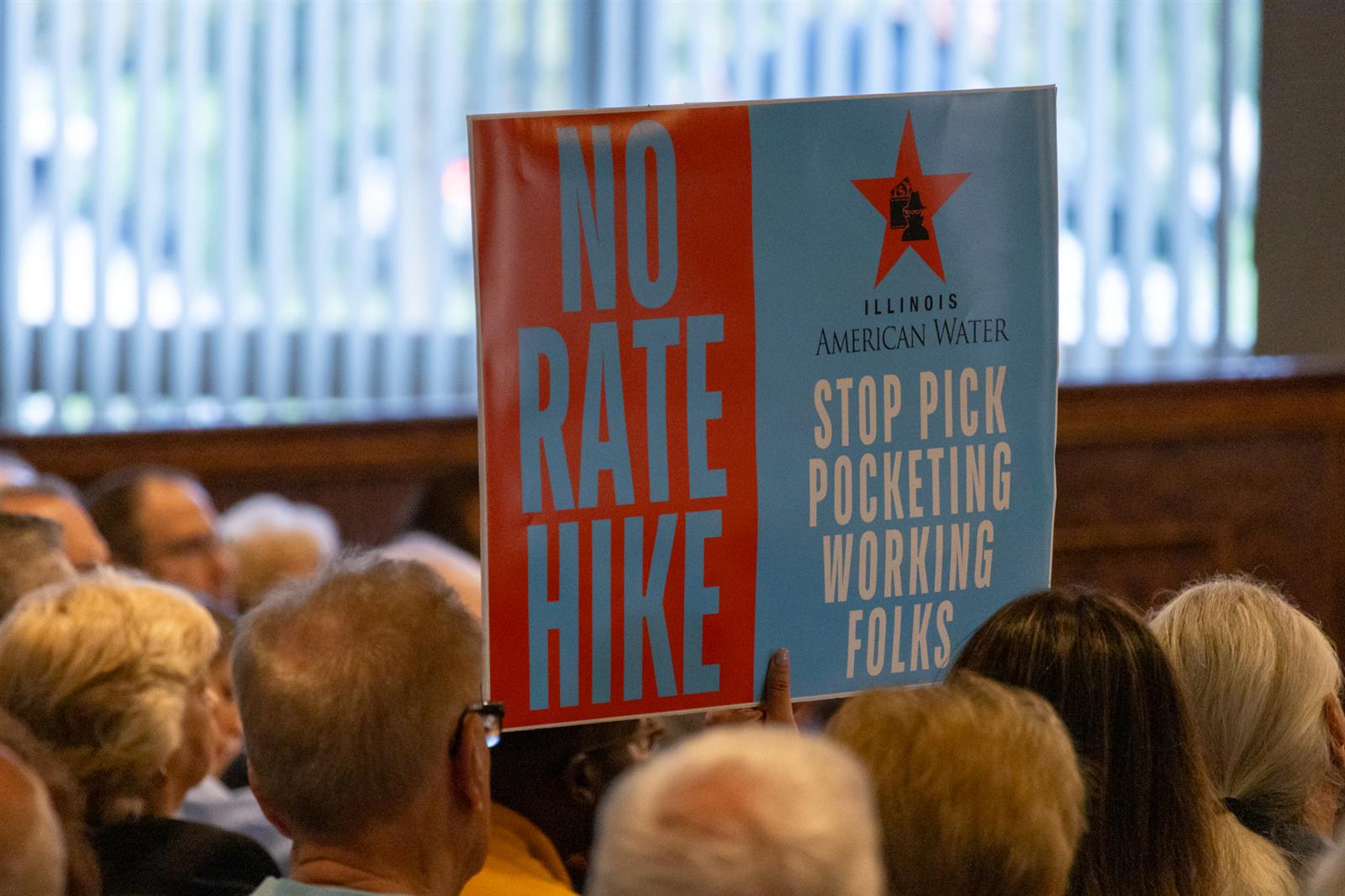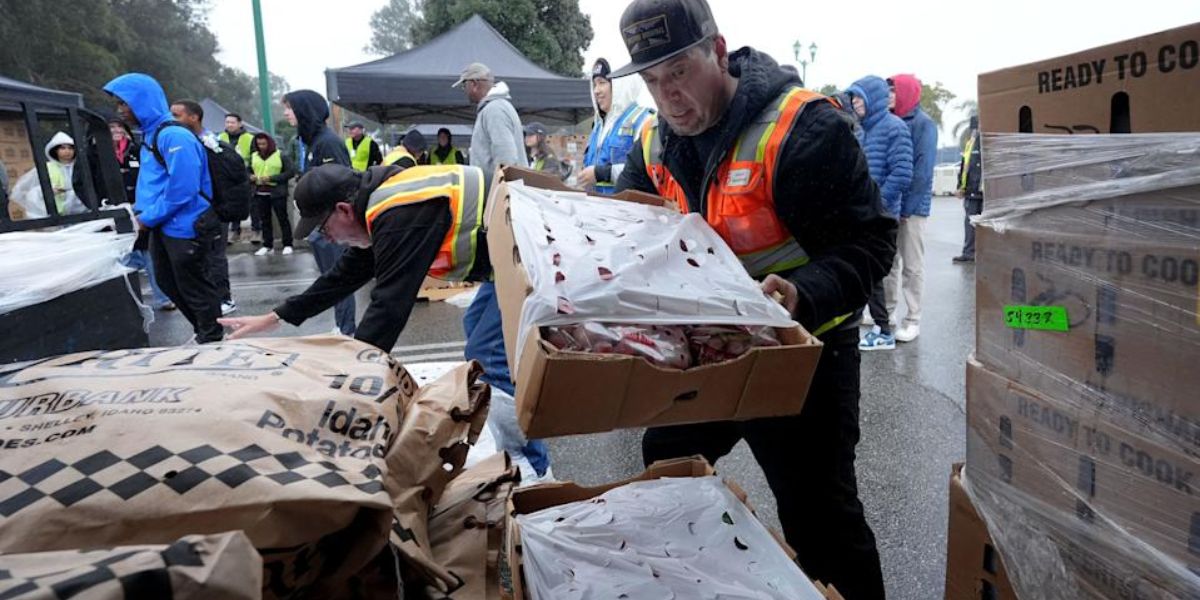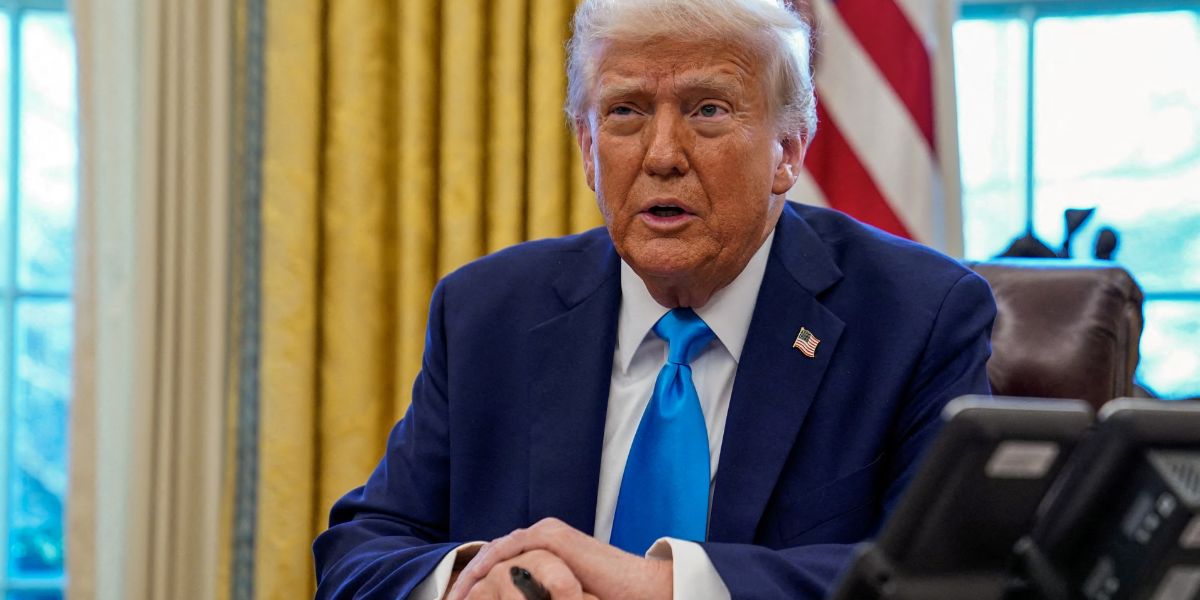Residents of Chicago’s southwest suburbs, alongside local and state elected officials, expressed their anger over a proposed water rate increase by Illinois American Water this week. They called the proposal “outrageous” and “ridiculous.”
The proposed rate hike would increase the average monthly bill for residential customers by nearly $30. Illinois American Water, serving about 1.3 million people statewide, is one of two private water utilities seeking rate increases before state regulators.
At a public hearing in Bolingbrook, attended by over 300 people, many voiced their opposition to the rate hike. This hearing was the second of three public forums held by the Illinois Commerce Commission (ICC), the state body that reviews utility rate changes. Previous hearings in Jerseyville and Champaign drew smaller crowds of about two dozen each.
In January, Illinois American Water requested the rate increase to fund infrastructure investments. “Rate increases are never popular, and we understand that,” said Illinois American Water President Rebecca Losli. “But we cannot ignore the infrastructure needs of our water and wastewater systems.”
Losli explained that the $557 million earmarked for infrastructure spending would be used for projects like lead pipe replacement and upgrading pump stations. The American Society of Civil Engineers gave Illinois a “C-” grade for its drinking water infrastructure and a “D+” for its wastewater systems, citing challenges related to replacing lead service lines and aging facilities.
The ICC is expected to decide on Illinois American Water’s request by the end of the year, with new rates taking effect shortly after. An ICC spokesperson said that while commissioners consider public comments, they cannot use them to resolve factual disputes.
At the Bolingbrook hearing, residents passionately opposed the rate increase. Pat Smith, a local resident, said her family already struggled to reduce their water bill despite taking measures like installing new insulation and upgrading windows. “We only bathe or shower twice a week now. We do dishes every week and a half. I combine clothes for laundry and do it every two weeks. We don’t water outside,” Smith said. “I’m not sure what else I can do to reduce water consumption.”
Cindy Zacharias, a registered nurse from Bolingbrook, highlighted the struggles of older residents on fixed incomes. “To have somebody say they can’t flush their toilet to save water? That they have to decide between paying a bill and buying food? Shame on all of you,” Zacharias said, addressing Illinois American Water executives.
Affordability concerns led AARP Illinois to get involved in the rate cases. While not formally challenging the proposals, AARP requested the public hearings. Bill Malcolm, AARP’s national government affairs director, opposed the increase in fixed monthly charges, which would rise from $17.98 to $26.12. “When you have a high fixed charge, it makes controlling your water bill more difficult,” Malcolm said.
Malcolm also criticized “riders” in the Illinois American Water proposal, which would allow the utility to adjust rates automatically for regulatory compliance and a low-income discount program. He noted that American Water, the parent company, had filed similar rate requests in Pennsylvania, Missouri, Kentucky, Indiana, and Iowa.
Other consumer advocates, like the Citizens Utility Board (CUB), are formally involved in the rate cases. CUB argues that the requested profit rate of 10.75 percent, up from 9.78 percent, is excessive and that customers should not cover bonuses tied to financial goals. “Those bonuses don’t benefit customers, and yet they want them to pay for it so shareholders don’t lose any profit,” said Laura Loyd, a lawyer with CUB.
Homer Glen Mayor Christina Neitzke-Troike also spoke out against the rate hike, citing high monthly water bills of up to $350. Homer Glen has a history of legal battles with Illinois American Water over control of the pipeline that supplies water from Lake Michigan, contributing to high water prices in the region.
Despite the vocal opposition, Neitzke-Troike worries that it won’t lead to action from regulators. “I don’t think things are going to change,” she said.
Some residents, like Randy Juras of Homer Glen, called for legislative action to control water utility spending. Pending legislation in Springfield aims to strengthen oversight and make it harder for water companies to buy publicly-owned systems, which contribute to rising rates. Sen. Rachel Ventura, D-Joliet, and Rep. Dagmara Avelar, D-Romeoville, support these changes.
Also Read:
- Study Shows Increase in Illinois Police Traffic Stops
- Impact of Biden’s Withdrawal on Gas Prices: Short-Term and Long-Term Effects
While these proposals didn’t gain traction in the last legislative session, neither did a proposal to speed up the privatization of public water systems. Aqua Illinois, another private utility, is also seeking a $19.2 million increase, which would raise bills by $29.91. Hearings on the Aqua Illinois case are scheduled for July 29 and August 1.







